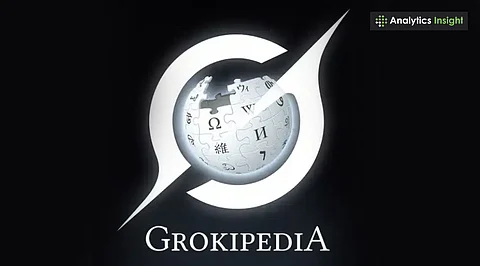Elon Musk has announced an ambitious new project called Grokipedia, an AI-driven knowledge platform designed to offer real-time, unbiased information. The initiative aims to challenge Wikipedia, which Musk has criticized for its perceived political biases. By leveraging artificial intelligence and real-time data, Grokipedia intends to provide a more dynamic and transparent alternative to traditional encyclopedias.
The platform is linked to Musk’s AI company, xAI, and is part of his broader vision for enhanced digital information accessibility. Unlike Wikipedia, which relies on volunteers to edit and verify content, Grokipedia is expected to utilize AI to automatically update articles whenever new information becomes available. This could significantly reduce the issues of outdated data that Wikipedia currently faces.
Addressing Concerns with AI
Musk has openly discussed his concerns regarding the bias he perceives within Wikipedia. He argues that the platform has become too political, favoring certain viewpoints rather than presenting information objectively. Grokipedia aims to counter this by employing AI to fact-check and analyze content, striving for neutrality and transparency.
To achieve this goal, large language models (LLMs) will likely be integrated into the platform, enabling it to identify misinformation and ensure that the content reflects the most current and accurate information. Musk’s ambition for Grokipedia aligns with his belief in the importance of free access to reliable information.
While specific technical details about Grokipedia remain under wraps, it is anticipated that the platform will utilize Grok AI, Musk’s chatbot technology. This suggests users may be able to interact with Grokipedia in a conversational manner, asking questions and receiving answers based on live data rather than static articles.
The Challenge Ahead
Wikipedia has been a respected information repository since its inception in 2001, boasting over 6.8 million articles in English, all maintained by a global community of volunteers. This collaborative model has fostered a sense of trust and credibility among users.
While Grokipedia’s AI capabilities may allow it to process information more quickly, it faces significant challenges in building the same level of trust. Concerns about AI-generated content, including the potential for inaccuracies or “hallucinations,” could hinder its acceptance among readers. Furthermore, questions remain about user contributions. Unlike Wikipedia, which encourages community editing, it is uncertain how Grokipedia will handle user input.
Despite these hurdles, Grokipedia promises several advantages over traditional platforms. Its ability to provide immediate updates, filter out biased information, and facilitate interactive learning through chat features could redefine how information is consumed. The platform might also integrate with established accounts on social platforms like X (formerly Twitter) to deliver real-time updates.
While the potential of Grokipedia is significant, replacing Wikipedia entirely seems unlikely. The latter has garnered community-based credibility and trust over more than two decades, a foundation that Grokipedia will need to develop.
As development continues, many questions remain, including the official launch date, which Musk has yet to announce. Nonetheless, Grokipedia represents a bold step into the future of knowledge sharing, one that could reshape how users access and verify information online.
